Proposed Legislation to Lift US Debt Limit Threatens Native Health Care
Happy May! In this month’s newsletter, we bring you important updates and information regarding our latest developments and initiatives within the Urban Indian Health Community.
-
May 10th – The Senate Appropriations Subcommittee on Interior, Environment, and Related Agencies will hold a hearing on the FY24 budget request for Indian Country. Tune in at 10 a.m. EDT here.
1 Big Thing: Proposed Legislation to Lift US Debt Limit Threatens Native Health Care
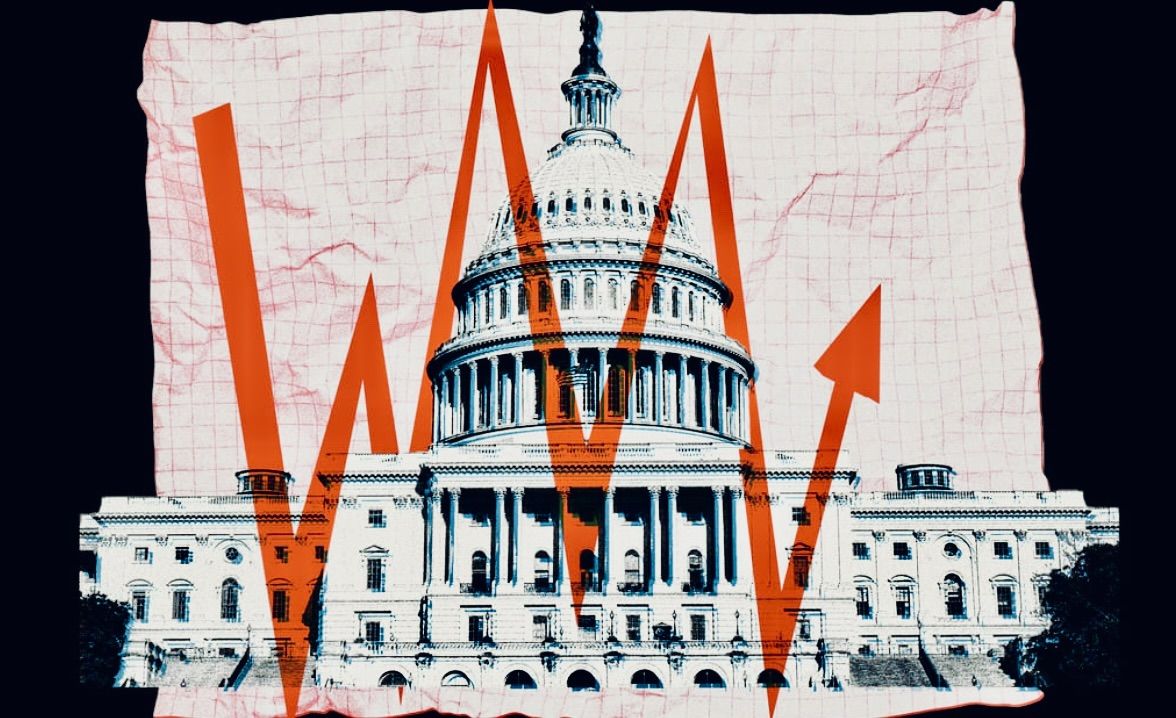
On April 17, 2023, Speaker of the House Kevin McCarthy (R-CA-20) proposed legislation to lift the US debt limit for a year, which passed the house by a vote of 215-217 on April 19.
The bottom line: The proposal includes several measures, including reverting federal spending to Fiscal Year (FY) 2022 levels, limiting spending increases to 1% a year for the next 10 years, rescinding any unspent Covid-19 funds, and enacting stricter work requirements for social programs such as Medicaid.
“The federal government must continue to work towards its trust and treaty obligation to maintain and improve the health of American Indians and Alaska Natives. Unfortunately, this legislation proposes senseless cuts at a time when our providers are making strides to improve the health of our communities. The United States’ promises to Native people are non-negotiable and our families should not be victims of DC politics over the debt ceiling,”
— Francys Crevier (Algonquin), NCUIH CEO.
Why it matters: These proposals would significantly impact healthcare access for Native communities. The federal government’s trust responsibility includes a duty to provide “federal health services to maintain and improve the health of the Indians.” The federal government cannot fulfill this responsibility if it does not provide the Indian health system with adequate funding.
By the numbers: If federal spending is reverted to FY 2022 levels, the Indian Health Service (IHS) line item would see a 4.7% reduction to $6.63 billion, while the urban Indian line item would see an 18.8% reduction.
-
Funding cuts have historically forced Indian health providers to make difficult decisions about the scope of the healthcare services they can offer to Native patients.
-
The $220 million reduction in IHS’ budget authority for FY 2013 resulted in an estimated reduction of 3,000 inpatient admissions and 804,000 outpatient visits for AI/ANs.
-
According to the Tribal Budget Formulation Workgroup, the amount for FY 2024 IHS should be at least $51.4 billion.
What’s next: The bill now awaits a vote in the Senate. President Biden has indicated that he would veto the legislation should it pass through Congress.
NCUIH Testifies before Congress on Tribal Healthcare Delivery
On March 29, 2023, NCUIH Board member Maureen Rosette testified before the House Natural Resources Subcommittee on Indian and Insular Affairs at a hearing titled “Challenges and Opportunities for Improving Healthcare Delivery in Tribal Communities.” Ms. Rosette’s testimony focused on the lack of funding, and uncertainty in funding, impacts oversight and UIO’s ability to provide for their patients.
What they’re saying:
-
In her opening remarks, Chairwoman Harriett Hageman (R-WY- AL) reaffirmed the trust and treaty obligation to Native health care, stating that “the federal government has taken upon itself to provide for the care of American Indians and Alaska Natives.”
-
Ms. Rosette emphasized that advance funding for IHS is needed to provide stable and predictable funding to ensure the continuity of care for American Indian and Alaska Native people.
“Advance Appropriations will now allow IHS to make long-term cost-saving purchases and minimize the administrative burdens for the agency and UIOs. It will also improve accountability and increase staff recruitment and retention at IHS. When IHS distributes its funding on time, our UIOs can pay their doctors and providers- giving Native people the access to care and services they need to be thriving communities,”
-Maureen Rosette, NCUIH Board Member and NATIVE Project COO.
Go deeper:
-
Watch NCUIH’s testimony.
NCUIH and Congressional Leaders Request Full Stable Funding for IHS and Urban Indian Health
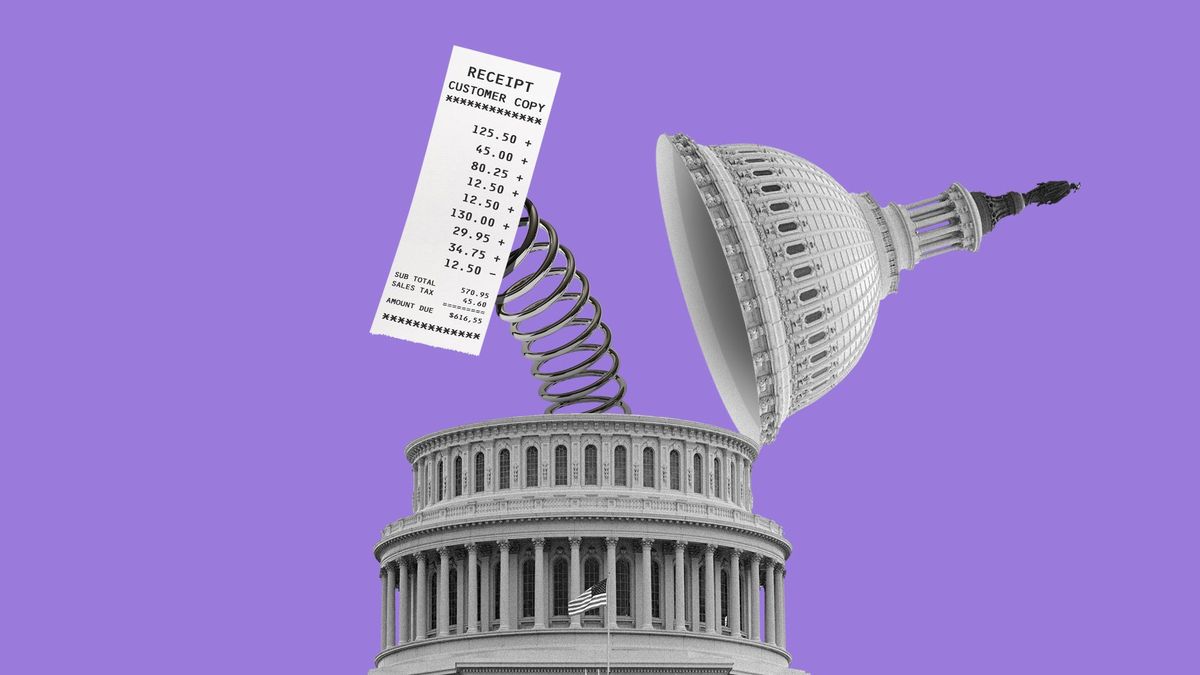
On April 8, 2023, NCUIH sent a letter to Chairman Jeff Merkley (D-OR) of the Senate Interior Appropriations Committee with funding requests for Indian health in FY 2024. On March 24, 2023, NCUIH also sent a letter to Chairman Kay Granger (R-TX-12) and Ranking Member Rosa DeLauro (D-CT-3) of the House Interior Appropriations Committee with the same requests.
In the letters, NCUIH requested the following:
-
Full funding at $51.42 billion for IHS and $973.59 million for Urban Indian Health for FY 2024, as requested by the Tribal Budget Formulation Workgroup (TBFWG).
-
Maintain Advance Appropriations for the Indian Health Service until Mandatory Funding is Enacted and protect IHS from sequestration.
-
Appropriate $80 million for the Native Behavioral Health Resources Program.
NCUIH also worked with Members of Congress on leading letters to their colleagues to request full funding for urban Indian health in FY 2024 and advance appropriations for IHS.
-
On April 4, 2023, Sen. Tina Smith (D-MN) and 10 other Senators sent a letter to Chairman Jeff Merkley (D-OR) and Ranking Member Lisa Murkowski (R-AK) of the Senate Interior Appropriations Committee.
-
On March 24, 2023, a group of 38 Representatives sent a letter to the House Interior Appropriations Committee.
Go deeper:
- NCUIH Letter to House Appropriations Committee
- NCUIH Letter to Senate Appropriations Committee
- Senate “Dear Colleague” letter
- House “Dear Colleague” letter
IHS Policy & Guidance: Distribution Decision for IHS FY 2023 Funding Increase, Updated FTCA Guidance
IHS Dear Urban Leader Letter on distribution decision for IHS FY 2023 Urban Indian Health funding increase:
-
IHS will distribute 90% of the funding equally to UIOs in the amount of $13.5 million. Funding will be transferred to UIOs via IHS contracts.
-
10% will be distributed to the IHS Office of Urban Indian Health Programs in the amount of $1.5 million.
IHS Updated Q&A on Federal Tort Claims Act (FTCA) Coverage:
-
The FTCA is a federal law that allows parties claiming to have been injured by certain tortious actions of persons acting within the scope of their duties to present claims for property damage, personal injury, and/or wrongful death to the federal agency or agencies involved in the incident.
-
UIOs and their employees are covered by the FTCA. For a UIO employee’s actions to be covered by the FTCA, the tortious act or omission must be medical in nature (including the operation of an emergency vehicle) and have been committed by a covered employee within the scope of the employee’s official duties.
-
The main difference between the 2022 and 2023 FTCA guidance is that the 2023 guidance makes clear that non-medical malpractice tort claims are not eligible for FTCA coverage.
NCUIH Priorities: 100% Federal Medical Assistance Percentage & Native Veterans
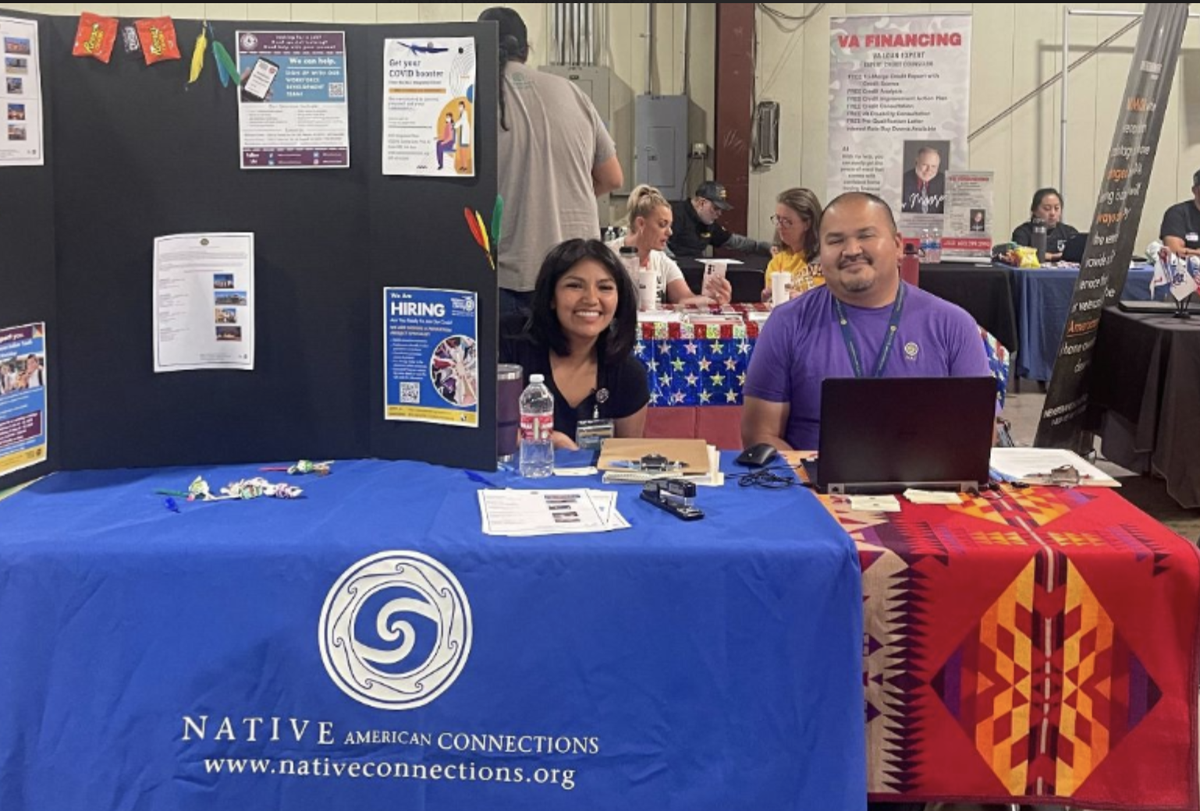
Noelle Clough, Project Manager; and Robin Quiroz, Outreach and Engagement Specialist, Native American Connections
100% FMAP for Medicaid Services at UIOs
-
On March 15-16, 2023, the Centers for Medicare & Medicaid Services (CMS) Tribal Technical Advisory Group (TTAG) held it’s Face-to-Face meeting with CMS leadership.
-
The TTAG approved 100% FMAP for Medicaid services at UIOs as a top Medicaid Legislative Policy Priority.
-
NCUIH staff attended as technical advisors to NCUIH President-Elect, Walter Murillo, who serves as the NCUIH representative on TTAG.
Native Veterans Homeless Initiative
-
On March 22, 2023, NCUIH met with the White House Council on Native American Affairs (WHCNAA) to discuss the Homeless Veteran Initiative for urban Native Veterans.
-
Department of Veterans Affairs (VA) is hosting stand down events in five areas: Phoenix, Seattle, Los Angeles, Albuquerque, and Alaska.
-
On April 28, 2023, Office of Urban Indian Health Programs Director Dr. Rose Weahkee attended the Maricopa County Stand Down event in Phoenix, AZ. Native American Connections set up a booth to offer a range of health care, behavioral health care, and housing services. The Stand Down event featured VA staff, community partners, and volunteers who provided food, clothing, and health screenings to homeless and at-risk Veterans. Veterans received referrals for health care, housing solutions, employment, substance use treatment, mental health counseling, and other essential services. Services were also offered to their pets.
NCUIH Leads Over 200 Organizations in Urging the Administration to Protect Healthcare Access for Families During Medicaid Unwinding
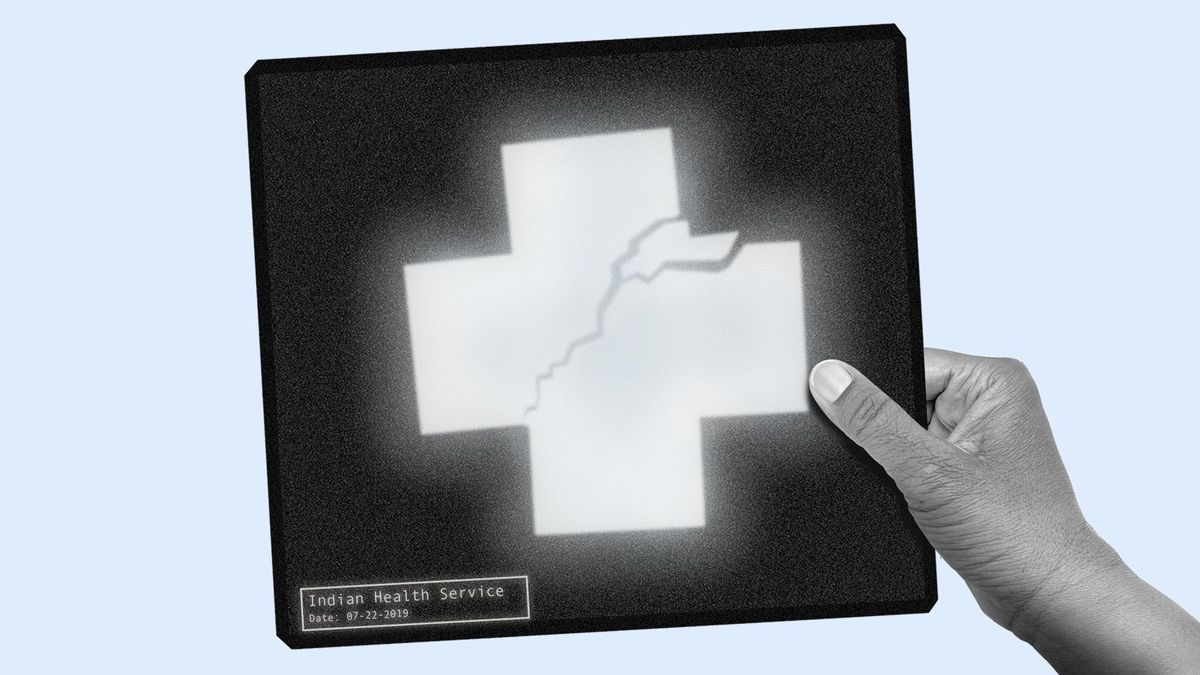
On April 24, 2023, NCUIH, in collaboration with the Asian & Pacific Islander American Health Forum, the Coalition on Human Needs, The Leadership Conference on Civil and Human Rights, the National Association for the Advancement of Colored People, National Urban League, Protect Our Care, UnidosUS and 220 other organizations sent a letter to the Department of Health and Human Services (HHS) Secretary Xavier Becerra.
Did you know?: Since Medicaid unwinding may disproportionately harm vulnerable communities, the Consolidated Appropriations Act of 2023 included authorities to protect beneficiaries from losing Medicaid coverage for administrative reasons. For example, according to the Assistant Secretary for Planning and Evaluation, three-fourths of children losing Medicaid will remain eligible but be terminated because of state administrative requirements. The letter calls on the Administration to use the full extent of these authorities to safeguard Medicaid coverage and outlines specific steps the Administration can take to avoid wrongful terminations.
“The unwinding currently taking place will have devastating and disproportionate impacts on Native people. It is estimated that 12% of all Native American children and 6% of all Native adults will lose their Medicaid or CHIP coverage as state Medicaid programs unwind. There is no reason that our people should lose access to necessary healthcare services because of administrative barriers. The federal government must do everything in its power to honor the trust responsibility to Native people and ensure we are not left without coverage,”
— Francys Crevier (Algonquin), NCUIH CEO.
The letter requests the Administration take four key steps to protect families:
-
CMS mitigation plans should prevent states from wrongfully terminating beneficiaries for purely procedural reasons.
-
CMS should hold state and local Medicaid agencies accountable for compliance with civil rights laws.
-
CMS should promote transparency and accountability by publishing state unwinding and performance indicator data as soon as possible.
-
CMS should hold states accountable for renewing coverage based on data matches “to the maximum extent practicable,” as required by Affordable Care Act.
Go deeper:
One last thing: NCUIH Visits Phoenix UIOs
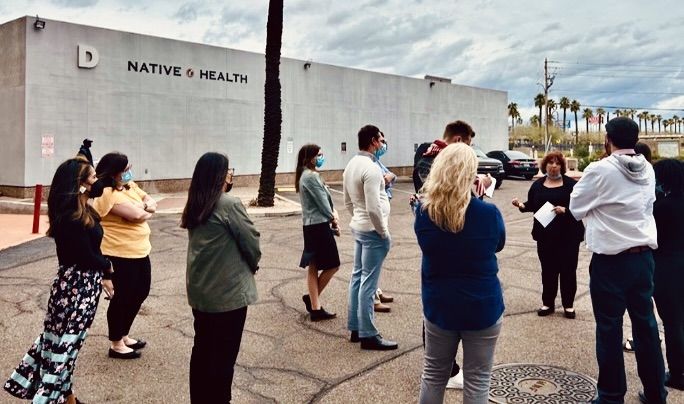
NCUIH staff visited NATIVE HEALTH of Phoenix.
During NCUIH’s senior staff retreat in Phoenix, AZ, NCUIH staff visited NATIVE HEALTH and Native American Connections to see the important work they are doing for urban Indian health.
NATIVE HEALTH has grown over its forty-year history to offer a full array of health care and social services throughout the Phoenix metropolitan area by providing a wide range of programs, including primary medical, dental, behavioral health, WIC (available at four sites), and community health and wellness programs.
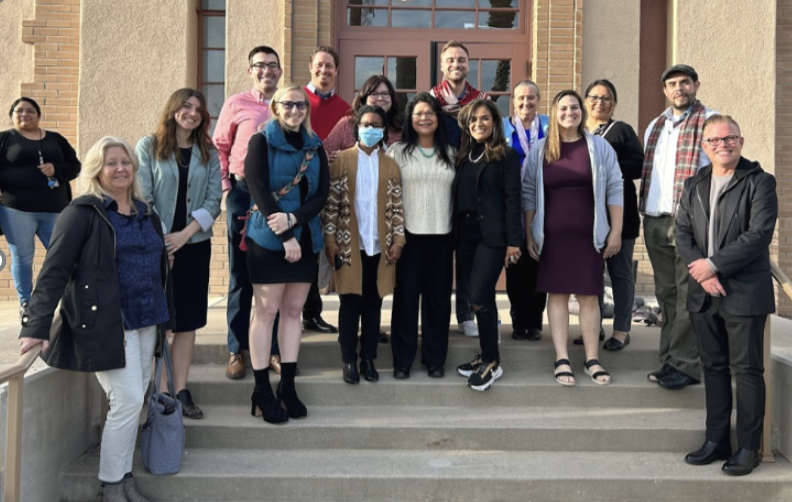
NCUIH staff visited Phoenix Indian School Visitor Center
NCUIH staff also visited the Phoenix Indian School Visitor Center for a tour led by Patty Talahongva, a former student and former director of the center.
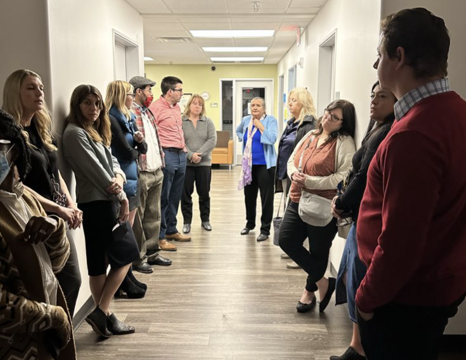
NCUIH staff visited Native American Connections
Native American Connections owns and operates 22 sites throughout Phoenix offering a continuum of affordable housing, health, and community development services that touch and change the lives of over 10,000 individuals and families each year.
Upcoming Events and Important Dates
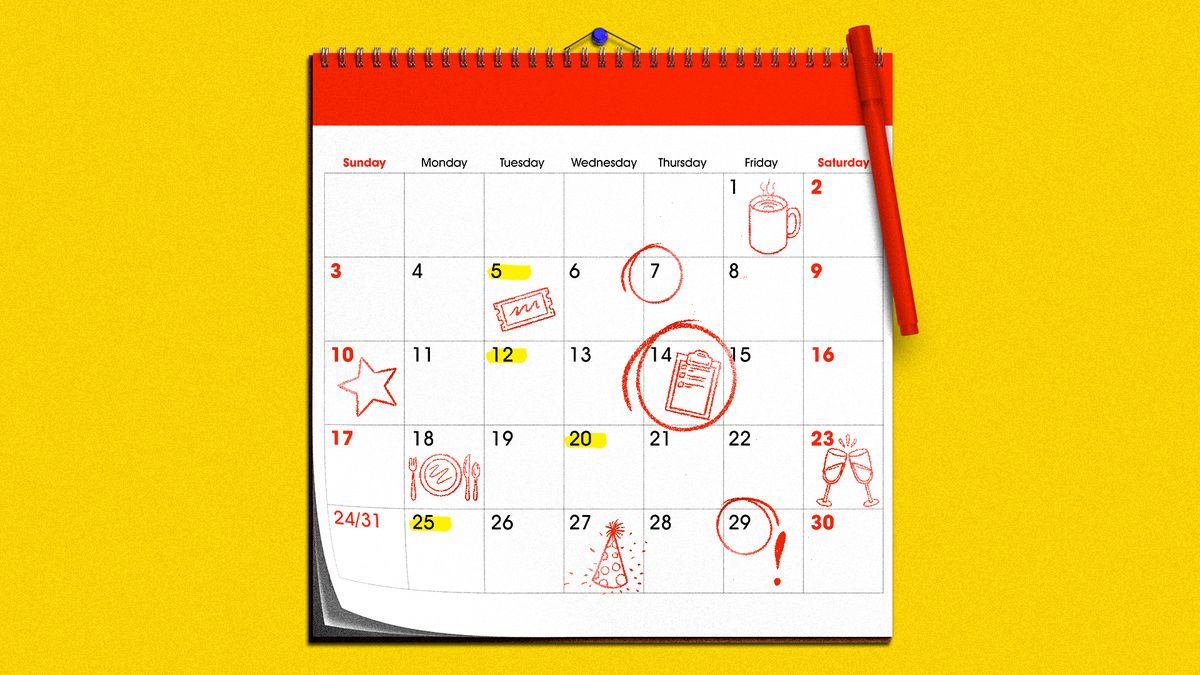
Upcoming Events:
- May 8-9 – California Consortium of Urban Indian Health Conference
- May 10 - Tribal Consultation and Urban Confer: IHS Health Information Technology Modernization Resources
- May 10 at 10am – Senate Appropriations Subcommittee on Interior, Environment, and Related Agencies Hearing on the FY24 budget request for Indian Country. Tune here.
- May 15-18 - NCUIH Annual Conference
- June 4-8 - NCAI 2023 Mid-Year Convention & Marketplace
- June 21 - Next NCUIH Monthly Policy Workgroup Meeting
Upcoming Comments and Submissions:
-
May 19 – Comment deadline for HHS Budget Testimony
ICYMI:
- On March 3, NCUIH submitted comments to HHS Office of the Assistant Secretary of Health (OASH) on Strengthening Primary Care.
- On April 7, NCUIH submitted comments to IHS on Health IT (HIT) Modernization: Preparing for Change.
- On April 24, NCUIH submitted comments to IHS on Access to Federal Medical Supplies.






Leave a Reply
Want to join the discussion?Feel free to contribute!